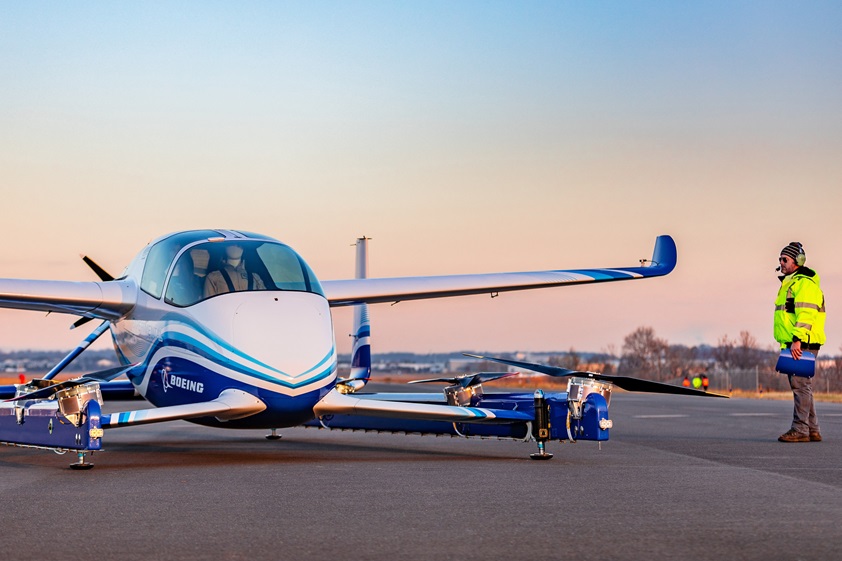Boeing flies electric VTOL prototype
It didn’t fly far, but a takeoff, hover, and landing on Jan. 22 in Manassas, Virginia, showed the world “what revolution looks like,” in the words of Aurora Flight Sciences CEO John Langford.
Langford’s company, a Boeing subsidiary since 2017, led Boeing’s effort to design and build a “passenger air vehicle” under the Boeing NeXt program, which aims to bring urban air mobility to the masses in the form of on-demand, autonomous air transportation.
“Certifiable autonomy is going to make quiet, clean and safe urban air mobility possible,” Langford said in a Jan. 23 news release.
Boeing posted a video of the flight, noting the rapid development of the concept aircraft.
“In one year, we have progressed from a conceptual design to a flying prototype,” said Boeing Chief Technology Officer Greg Hyslop. “Boeing’s expertise and innovation have been critical in developing aviation as the world’s safest and most efficient form of transportation, and we will continue to lead with a safe, innovative and responsible approach to new mobility solutions.”
Electric motors drive the PAV, which uses a mix of lifting rotors and airfoils to achieve vertical takeoff and landing, and more efficient forward flight supported by wings. The PAV will have a range of up to 50 miles, and is not the only aircraft Boeing is developing for autonomous flight. The NeXt program also includes an unmanned cargo aircraft able to transport up to 500 pounds, among other platforms.





